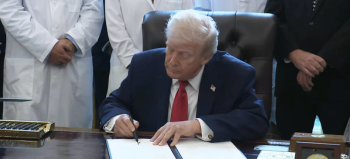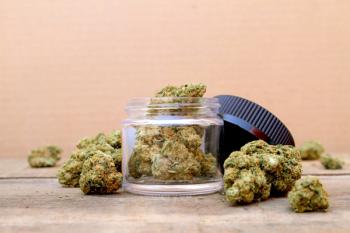
Cannabis Science and Technology
- September 2020
- Volume 3
- Issue 7
Cannabis Extracts: The Need for Standardization and Accreditation in Emerging Industries
Highlights of the challenges facing the cannabis extracts industry and discussion about the need for standardized methods and the role of laboratory accreditation.
As the market for legalized cannabis extract products, such as edibles and vape liquids, continues to grow, laboratory testing to ensure the quality of these products has not kept pace with the range of new products available. The wide range of products will require a suite of different methods that may need to be validated for each sample type. For example, some testing methods for tetrahydrocannabinol (THC) in dried cannabis material are not appropriate for measuring THC in foods and beverages. This article highlights challenges facing the cannabis extracts industry and emphasizes the need for standardized methods and the role of laboratory accreditation.
Challenges with Method Validation
Relative to dried cannabis material, cannabis extracts and edibles pose a significant measurement challenge because of their high complexity and diversity. For instance, food products such as chocolate create difficulties with cannabinoid extraction due to the high fat content and also yield a multitude of interference peaks that can hinder accurate quantitation. In some cases, more complex samples will require the added specificity offered by techniques such as liquid chromatography–tandem mass spectrometry (LC–MS/MS) (1). While LC–MS/MS offers superior specificity relative to conventional liquid chromatography with optical detection, it still requires rigorous validation to ensure accuracy because of its susceptibility to matrix effects that suppress signal.
Validated test methods that are accurate, precise, and robust are required to ensure reliability of cannabis testing results. In addition, the use of validated methods is a requirement of ISO/IEC 17025 and has been specified in cannabis regulations of many jurisdictions. Rigorous method validation is labor intensive, and without suitable reference materials available for all sample types, it often requires relatively large amounts of the target analytes for spiking and recovery experiments to demonstrate accuracy. This can be particularly challenging for assessing accuracy for cannabinoids such as Δ9-tetrahydrocannabinol (Δ9-THC), with most laboratories limited to using the 1 mg/mL commercial Δ9-THC standard solutions for legal reasons, which are too dilute for effective spike and recovery studies.
Therefore, validation of cannabinoid methods in extracts and edibles is costly, time consuming, and typically impractical for many testing laboratories that could lack the resources or expertise. For similar matrices, such as different chocolate varieties, there is considerable debate about whether a complete method revalidation is required, or a more streamlined method verification is sufficient. Regulations in some jurisdictions do not provide clear guidance on this issue, so many laboratories will likely choose the most cost-effective option.
The Need for Standard Methods
To help reduce the need for individual laboratories to validate their own methods for cannabis testing, there is a growing need for standardized testing methods in the cannabis industry (2), and the edibles and extracts industry in particular. Already prevalent in the food testing industry and other established markets, standard test methods help ensure harmonization of testing results across different laboratories, even across international borders. While standard methods take considerable time to develop and generally involve some form of interlaboratory study, the burden of the full method validation is shouldered by only a small number or even a single laboratory. The end result is not only greater harmonization and reliability of results, but also a significant cost savings across the entire industry as users of the standard method can avoid costly validation studies. This cost savings could be vital to the long-term viability of licensed cannabis producers, which continue to be undercut by the illicit market.
Fortunately, there are considerable efforts underway by several organizations dedicated to the development of standard test methods for cannabis products. ASTM International formed Committee D37 on Cannabis to develop standards for cannabis, its products, and processes (3). With nine subcommittees ranging in scope from "Quality Management Systems" to "Processing and Handling," the Laboratory subcommittee is dedicated to the development of standard test methods for cannabis products. A "Standard Practice for Laboratory Test Method Validation and Method Development" specific to the cannabis industry has been published (4) and several test method standards are in development. AOAC International has developed its Cannabis Analytical Science Program (CASP), which is a forum where the science of hemp and cannabis analysis can be discussed, and cannabis standards and methods developed (5). Several AOAC standard method performance requirements (SMPR) have been published, and an official method for cannabinoids in cannabis dried plant materials, concentrates, and oils using liquid chromatography-ultraviolet detection (LC-UV) and LC–MS/MS has been published (6). Finally, the US Pharmacopeia (USP) has established an Expert Panel on cannabis, tasked initially with the development of the equivalent of a monograph for cannabis for medical purposes (7).
While the majority of standard test methods in development are dedicated to dried cannabis plant material, these organizations are prioritizing standards development for extracts and edibles. For instance, AOAC’s CASP has developed a new working group dedicated to "Cannabis and Consumables." In addition, ASTM D37’s Laboratory subcommittee has initiated a work item on the characterization of vape liquid components by gas chromatography–mass spectrometry (GC–MS). The complementary resources from these organizations and others will undoubtedly lead to greater standardization in the cannabis extracts industry.
The Role of Laboratory Accreditation
Accreditation is defined as “a third-party attestation related to a conformity assessment body (the laboratory) conveying formal demonstration of its competence to carry out specific conformity assessment tasks (the tests).” In other words, it is a formal process by which an independent party, an accreditation body (AB), evaluates and acknowledges a laboratory’s technical competence to perform specific tests, which usually are listed on a scope of accreditation. The AB accomplishes this by using trained and qualified technical experts to evaluate the laboratory against the appropriate international standard, in this case ISO/IEC 17025. The AB may also use additional program-specific and regulatory requirements in assessing the competence of the laboratory.
In an industry where there are few standard methods, where one hears that you can “pay to play,” and where there are laboratories popping up run by staff with little experience in operating a testing laboratory, it is extremely important to have an experienced, independent, third party accrediting body such as A2LA evaluating the laboratory. An AB confirms a laboratory’s adherence to appropriate quality management system standards and standard methods or their own internally developed methods when assessing a laboratory to ISO/EIC 17025. Through this assessment, the AB can verify that those methods produce valid results. Ultimately, the process of accreditation through a reliable AB gives the public confidence that a testing laboratory is competent, ensuring consumers have access to a quality product.
ISO/IEC 17025:2017 for Emerging Industries
ISO/IEC 17025:2017 takes a risk-based approach and allows for flexibility for laboratories in emerging industries. One of the biggest issues facing laboratories in new industries is inconsistent test results, and cannabis is not an exception to this. Several factors validate this reality, including the lack of standard methods, sampling plans that are not statistically valid, and a lack of accredited proficiency testing providers and reference material producers.
When an AB assesses a laboratory to ISO/IEC 172025, the assessor utilized will be a technical expert in the field that the laboratory is being accredited to. This means that an analytical chemist with experience with biological techniques will be assessing the ins-and-outs of the laboratory as a peer. The writers of ISO/IEC 17025:2017 took into account that not all industries are equal. This is why they created it with a risk-based mindset, allowing different laboratories to meet the intent of the standard in several different ways. Smaller laboratories in emerging industries are able to take an approach to meeting ISO/IEC 17025:2017 that may not work for larger, more established laboratories. There are several clauses that take into account areas that can vary widely from industry-to-industry. ISO/IEC 17025:2017 includes a section applicable to laboratories not able to use standard methods, as well as laboratories performing their own sampling. This allows for the assessor to take a deep dive into the method validation and sampling plans developed, ensuring that the laboratory is able to get consistent and reliable results. ISO/IEC 17025:2017 also includes several alternates to commercial proficiency testing and use of reference materials in emerging industries where these may not be available. The laboratory is able to ensure the validity of their results in the ways that best meet their industry needs, and it is up to the AB to determine if they are using the resources available to them when possible.
In addition to ISO/IEC 17025:2017, laboratories have the ability to be assessed to additional requirements by their AB. Some examples of programs that A2LA’s cannabis laboratories have opted to be assessed to include an assessment to the American’s for Safe Access (ASA) Requirements adopted from the American Herbal Products Association or the AOAC Food Testing Requirements. The ASA program requirements incorporate key issues in the cannabis industry, including security, competency of personnel, and interactions with regulators. The AOAC program requirements offer additional requirements that can be beneficial when testing edibles, such as handling and confirming the validity of reagents and equipment, competency of staff, and quality control. Although ISO/IEC 17025:2017 is a great framework for cannabis laboratories, seeking accreditation to additional program requirements is one way to ensure that their customer base and the public has additional reassurance that their results are going to be consistent and reliable.
Conclusion
The countless possibilities for cannabis extract products will undoubtedly create difficulties for testing laboratories to achieve accurate and reliable results. Standardized testing methods combined with appropriate laboratory accreditation will be effective tools in meeting these challenges, and will help ensure the long term viability of regulated cannabis markets.
References
- N. Christinat, M.C. Savoy, and P. Mottier, Food Chem. 318, 126469 (2020).
- B.C. Smith, CannabisScience and Technology 2(2), 12-17 (2019).
- ASTM. Cannabis D37 committee. 2020;
https://www.astm.org/COMMITTEE/D37.htm . - ASTM D8282-19. Standard Practice for Laboratory Test Method Validation and Method Development
- AOAC. Cannabis Analytical Science Program. 2020;
https://www.aoac.org/scientific-solutions/casp/ . - L. Vaclavik, et al., J. AOAC Int. 102(6), 1822–1833 (2019).
- N.D. Sarma, et al., J. Nat. Prod. 83(4), 1334–1351 (2020).
About the Authors
Jeremy E. Melanson is with the National Research Council Canada, Metrology Research Center in Ottawa, Ontario, Canada.
Anna Williams is with A2LA in Frederick, Maryland. Direct correspondence to:
How to Cite this Article
J. Melanson and A. Williams, Cannabis Science and Technology 3(7), 38-40 (2020).
Articles in this issue
about 5 years ago
The Pet Lab Syndromeabout 5 years ago
To Grind or Not To Grindabout 5 years ago
Budtender: Is That a Harmful Mold in My Bud?about 5 years ago
The Hidden Costs of Falling FilmsNewsletter
Unlock the latest breakthroughs in cannabis science—subscribe now to get expert insights, research, and industry updates delivered to your inbox.




